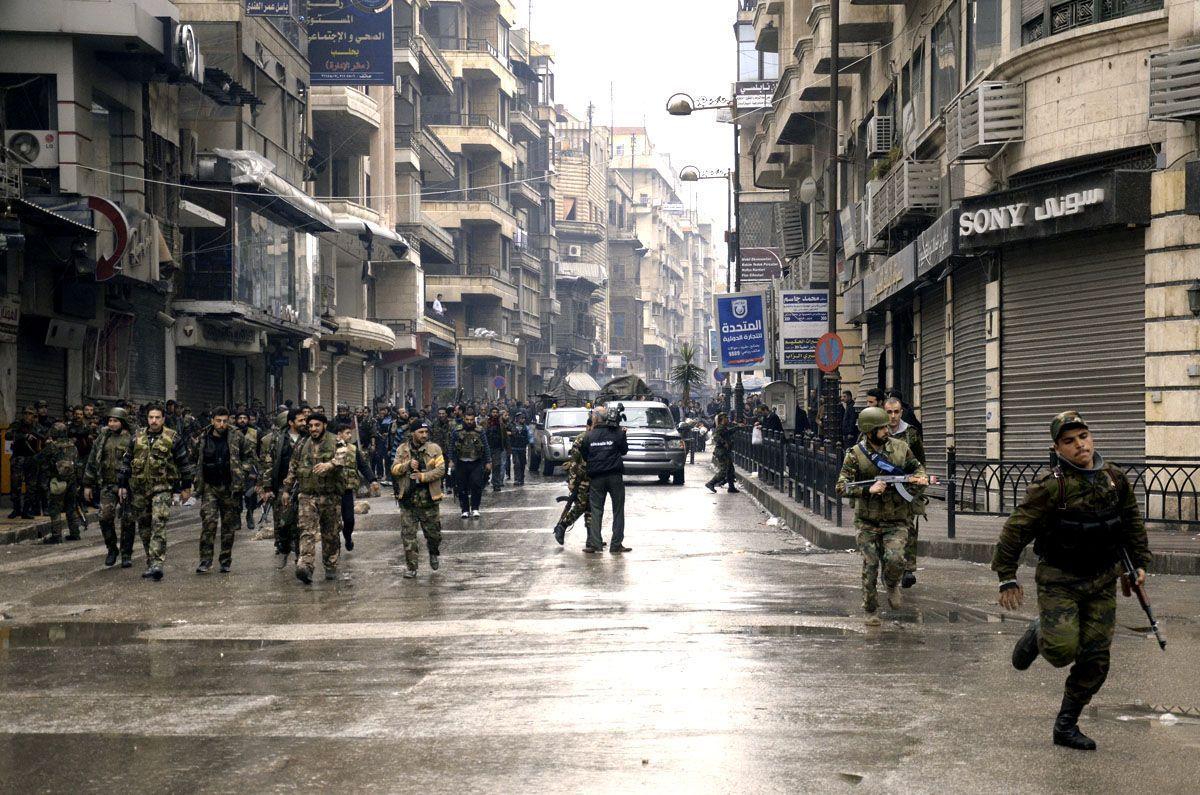Syria’s economy will shrink by about 15 percent this year compared to a contraction of 20 percent in 2012 and 6 percent in 2011, as the two-year rebellion against President Bashar Al-Assad takes its toll on the country’s industries and investment falls, while sanctions limit export capacity, the Institute of International Finance (IIF) said.
The economy’s nominal size is projected to drop to US$27bn in 2013 compared with US$57.5bn in 2010 prior to the revolt against the Syrian leader, as tourism receipts and foreign direct investment dry up, the IIF said.
Tourism receipts accounted for around 11 percent of gross domestic product in 2010, while FDI in 2010 was at US$1.5bn.
The Syrian pound has lost 72 percent of its value since the end of 2010 and is forecast to trade at 85 to the US dollar in 2013, the IIF said. The country’s central bank said the new official rate of the Syrian pound to the dollar is about 81. That compares with a rate of about 47 pounds to the dollar before the uprising in 2011. The pound is trading above 90 to the greenback in the black market.
The country’s fiscal deficit, financed mostly by domestic banks, is forecast to widen 13 percent of GDP in 2013 compared with 16.3 percent last year as the government increases spending and tax revenue and oil receipts decline, the IIF said.
Syria’s foreign currency reserves are projected to plunge to US$2.1bn, enough to cover one month of imports, compared with US$5.6bn at the end of last year, the IIF said. The central bank had about US$18bn in foreign currency reserves prior to the outbreak of violence in the southern part of the country.
Power outages over the two-year uprising against the government of Syrian leader Bashar Al-Assad have cost the state SYP218bn (US$2.7bn), as a result of “acts of sabotage” and “terrorism” electricity minister Imad Khamis said last month.
The construction of two power plant projects has been delayed due to lack of funding of about €420m from the European Investment Bank, Khamis was cited as sayign by official state SANA news agency.
About 60,000 people have been killed since the start of a two-year conflict while 600,000 have fled the country to neighbouring Turkey, Jordan and Lebanon, according to the United Nations.
Assad’s government has blamed the violence in the country on extremists and a foreign conspiracy.









